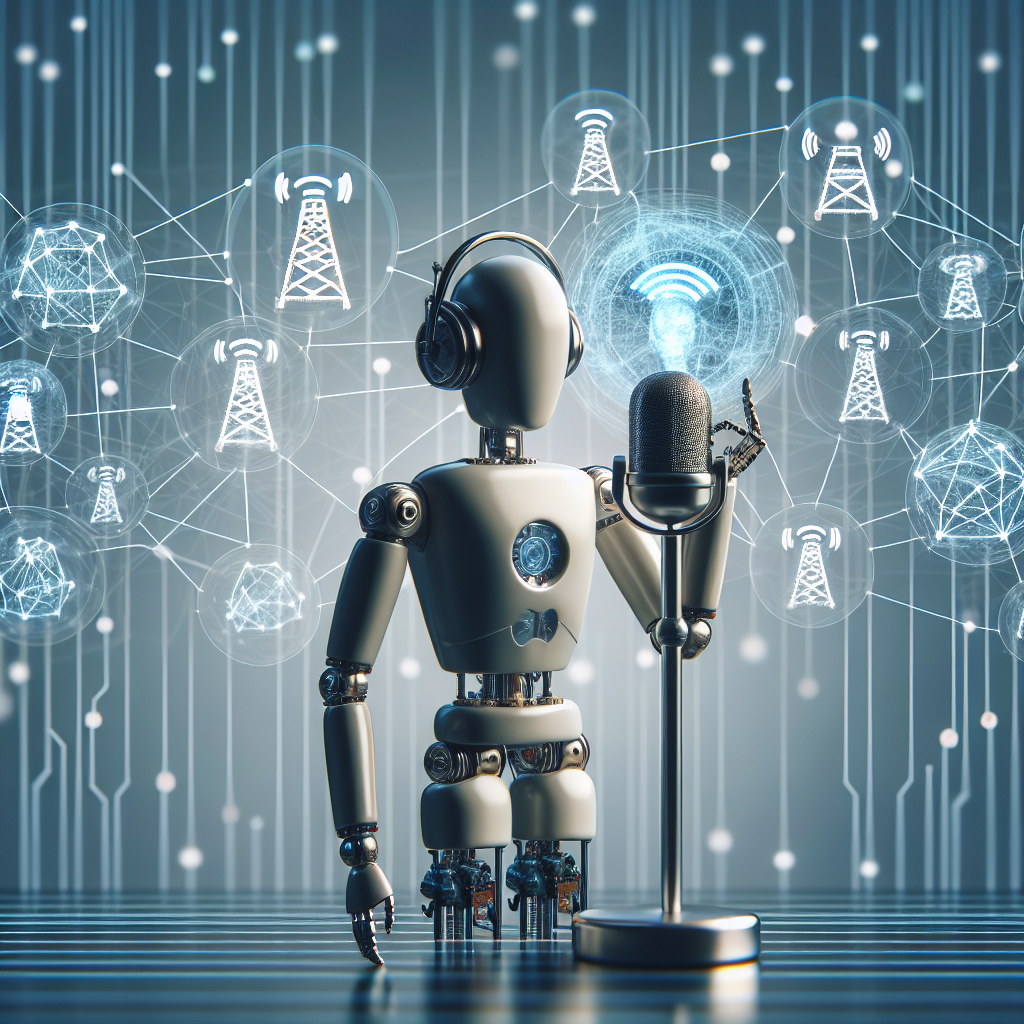AI-powered customer service has become increasingly prevalent in telecommunications networks, transforming the way companies interact with their customers. This technology offers a wide range of benefits, including improved efficiency, faster response times, and personalized customer experiences. In this article, we will explore how AI is revolutionizing customer service in telecommunications networks and its impact on the industry.
AI-powered customer service in telecommunications networks
AI-powered customer service utilizes artificial intelligence technologies, such as machine learning and natural language processing, to automate and improve customer interactions. This technology enables companies to provide 24/7 support, instantly respond to customer inquiries, and offer personalized recommendations based on customer data.
One of the key applications of AI in customer service is chatbots. These virtual assistants are capable of understanding and responding to customer queries in real-time, providing immediate assistance without the need for human intervention. Chatbots can handle a wide range of customer service tasks, such as answering frequently asked questions, troubleshooting technical issues, and processing payments.
In addition to chatbots, AI-powered customer service in telecommunications networks also includes virtual agents, which are more advanced chatbots that can engage in more complex conversations with customers. Virtual agents are capable of understanding context, emotions, and intent, allowing them to provide more personalized and human-like interactions.
AI-powered customer service is also used to analyze customer data and provide insights to improve customer experiences. By analyzing customer interactions, behaviors, and preferences, companies can better understand their customers and tailor their services to meet their needs. This data-driven approach enables companies to personalize their marketing efforts, anticipate customer needs, and proactively address issues before they arise.
Benefits of AI-powered customer service in telecommunications networks
AI-powered customer service offers a wide range of benefits for telecommunications companies and their customers. Some of the key benefits include:
1. Improved efficiency: AI-powered customer service can handle a large volume of inquiries simultaneously, providing instant responses to customers and reducing wait times. This improves efficiency and allows companies to serve more customers in less time.
2. Faster response times: AI-powered customer service can provide immediate assistance to customers, reducing the need for customers to wait for a human agent to address their concerns. This results in faster response times and improved customer satisfaction.
3. Personalized experiences: AI-powered customer service can analyze customer data to provide personalized recommendations and offers based on individual preferences. This personalization enhances the customer experience and increases customer loyalty.
4. 24/7 support: AI-powered customer service operates round the clock, providing customers with support at any time of the day or night. This ensures that customers can get assistance whenever they need it, regardless of the time zone or location.
5. Cost savings: AI-powered customer service can help companies reduce costs by automating repetitive tasks and freeing up human agents to focus on more complex issues. This results in cost savings and increased operational efficiency.
Overall, AI-powered customer service in telecommunications networks offers a range of benefits that can help companies improve customer satisfaction, increase efficiency, and drive business growth.
FAQs about AI-powered customer service in telecommunications networks
Q: How does AI-powered customer service work in telecommunications networks?
A: AI-powered customer service in telecommunications networks uses artificial intelligence technologies, such as machine learning and natural language processing, to automate and improve customer interactions. This technology enables companies to provide 24/7 support, instantly respond to customer inquiries, and offer personalized recommendations based on customer data.
Q: What are some of the key applications of AI in customer service?
A: Some of the key applications of AI in customer service include chatbots, virtual agents, and data analysis. Chatbots are virtual assistants that can understand and respond to customer queries in real-time, while virtual agents engage in more complex conversations with customers. Data analysis is used to analyze customer data and provide insights to improve customer experiences.
Q: What are the benefits of AI-powered customer service in telecommunications networks?
A: AI-powered customer service offers a wide range of benefits, including improved efficiency, faster response times, personalized experiences, 24/7 support, and cost savings. This technology can help companies improve customer satisfaction, increase operational efficiency, and drive business growth.
Q: How can companies implement AI-powered customer service in their telecommunications networks?
A: Companies can implement AI-powered customer service by partnering with technology providers that offer AI solutions tailored to the telecommunications industry. These providers can help companies integrate AI technologies into their existing customer service systems and train their employees to use the technology effectively.
Q: What are some best practices for implementing AI-powered customer service in telecommunications networks?
A: Some best practices for implementing AI-powered customer service in telecommunications networks include setting clear goals and objectives, training employees to use the technology effectively, monitoring performance metrics, and continuously optimizing the system based on customer feedback. Companies should also ensure that the technology complies with data privacy regulations and industry standards.

